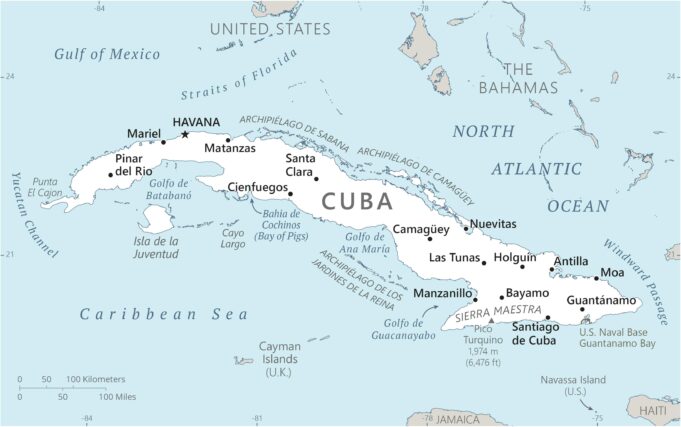Following a private briefing on Capitol Hill in which a U.S. State Department official angered Democratic lawmakers by revealing that the Biden administration has not yet begun a lengthy review process to remove Cuba from the government’s list of “State Sponsors of Terror,” Reps. Ayanna Pressley and Jim McGovern led other Massachusetts Democrats in demanding that the White House expedite the process.
The letter sent to President Joe Biden was written in mid-December, a week after the closed-door meeting took place, but was not released until Dec. 2.
Pressley and McGovern were joined by Reps. Lori Trahan, Stephen Lynch, and Seth Moulton, as well as Sens. Elizabeth Warren and Ed Markey in calling on Biden to reverse the “vindictive action” taken by former Republican President Donald Trump just before he left office in January 2021, when he added Cuba to the SSOT list.
The Democrats noted that while there are numerous reasons for Cuba’s economic crisis, “without a doubt a significant contributing factor is the restrictions and penalties facing international financial institutions and other entities because Cuba is on the SSOT list.”
“From the poorest and most vulnerable to the struggling private sector to religious, humanitarian, and cultural actors, the Cuban people are enduring the most dire deprivations in recent memory—everyone is suffering,” the letter reads. “Removing Cuba from this list is one thing that the U.S. can do immediately to ease the daily hardships facing so many Cuban families, including its struggling private sector.”
Inclusion on the SSOT list limits Cuba’s participation in international financial markets, as other countries are forced to choose between doing business with the wealthiest country in the world and the small island nation that it claims supports terrorism.
Trump claimed the designation was necessary because Cuba was aiding terrorists in Colombia—reasoning that the lawmakers called “specious.”
“During his most recent visit to the United States, Colombian President Gustavo Petro appealed personally to you for Cuba to be removed from the list to facilitate peace negotiations between the Colombian government and the National Liberation Army (ELN) guerrillas,” wrote the lawmakers.
The December meeting on Capitol Hill left several Democrats “furious,” a lawmaker who was granted anonymity told The Intercept last month (December), particularly because McGovern had reportedly been told that the review process, which takes about six months, was ongoing.
In the letter the lawmakers pointed out that on the campaign trail, Biden pledged to “address re-engagement with Cuba” and lift Trump’s punishing economic sanctions, returning to the normalized relations introduced by the Obama-Biden administration.
As William Leogrande wrote at The Nation on Jan. 1, Cuba’s foreign exchange earnings have been “drastically reduced” by the sanctions.
“The impact of the economic crisis is visible everywhere,” wrote Leogrande. “There are fewer cars on the streets and long lines at gas stations because of the fuel shortage. Tourist hotels stand half-empty and the once bustling streets of Old Havana are quiet.
The shelves in state stores are mostly bare, often lacking even the limited basket of goods that Cubans receive at subsidized prices on their ration book. Garbage is accumulating on street corners. Street crime is rising.”
Alleviating some of the suffering by removing Cuba from the SSOT list, said the Democratic lawmakers in their letter to Biden, “is the only option worthy of the United States.”
— by Julia Conley, CommonDreams.org













